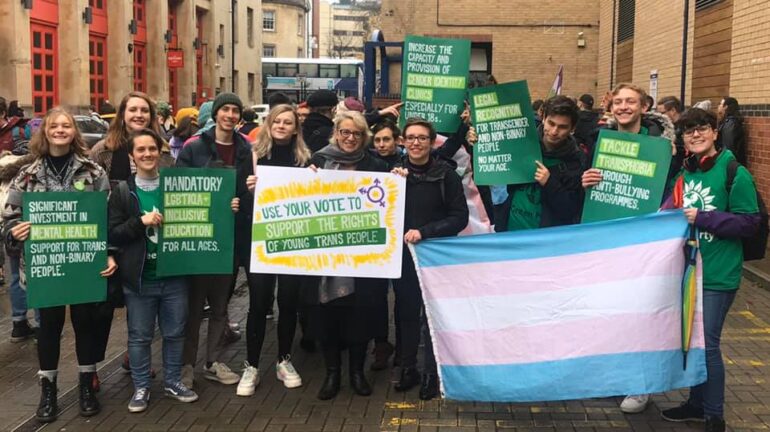Radical Independence Conference: Doing Feminism
This weekend I was one of four Bright Green editors who took a day trip through to Glasgow to give a workshop at the Radical Independence Conference. It was a great event, not least because it was a rare opportunity to see so many people from different parts of the notoriously tribal Left playing nicely with each other.
But while the conference as a whole was very well attended, with standing room only at some of the plenaries, the session which has given me most to think about was a rather sparsely attended one on Women and Independence. The content rather mixed – some of it was excellent, some of it dismal – but several women speaking from the floor raised a very important point that bears repeating: why were serious social issues like discrimination and domestic violence only addressed in a single workshop that was tacked on at the end of the programme?
One thing which I find endlessly frustrating is that gender politics is so often pigeon holed as “women’s issues”, as if it is something which is just for the girls. Where once the women at a political gathering might have been sent off to make the tea and sandwiches, these days we’re expected to retire to a separate room to do feminism while the men get on with some real politics.
The thing is, feminism is real politics. It’s very real politics concerning the lived experiences of large numbers of very real human beings, both male and female. And it’s a very real real issue for people on the Left, because even though we may like to think that we’re all pretty enlightened, there are men in our organisations who treat women appallingly, whether as abusers or the people who protect them. We live in a country where one in four women will experience sexual violence (mostly, but not exclusively, at the hands of men), and our communities tolerate it. Scotland has an appallingly low conviction rate for rape; the worst of any area in the UK. This is not a “women’s issue” to be addressed as an add-on or a diversity check box – it’s as issue for society as a whole.
The people who attended the Women and Independence session at the Radical Independence conference wanted to know why these issues could only be addressed in a small niche group made up mostly of women. If the conference organisers had wanted to be truly radical, they could have put these serious issues of human rights on the agenda for everyone.
For more reflections on the same workshop, see Prokofiev and Politics.



hi, What I still don’t really grasp is how is sexual violence different from just violence and why?
It seems to me , as a man, that there are all sorts of difficult to sort out issues with rape and sexual violence. A lot of this is now buried under religious and cultural taboos and rituals.The result being I think that it is hard to talk about sexual violence by many of us. I do find sexual crimes hard to contextualize. For instance male celebrities seem to be able to attract large numbers of females for sex (not necessarily all on the same night :)). Is that abuse? It is clearly to do with power but is usually consensual I would guess.
W hy should woman (and men)feel ashamed if they are raped? Isn’t this a reaction to male dominance, jealousy and misogyny. Should woman and men question the whole concept of how rape is treated and thought of by society and the justice system including the victims. If to be raped was not seen as a shameful thing but an act of violence varying from relatively mild to grievous with penalties relative to that rather than to a sex offence would it not be healthier?
Rob